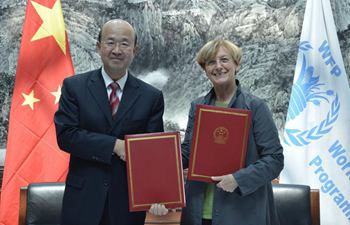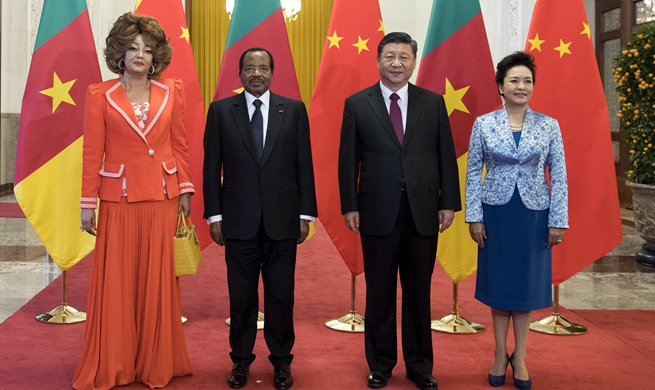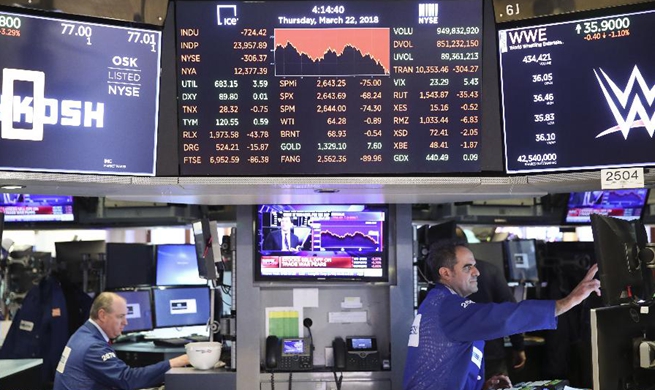GENEVA, March 23 (Xinhua) -- No country can benefit from trade wars, said Lu Xiankun from the International Trade, Development, Economic Governance and Advisory Services Center (IDEAS Center) in an interview with Xinhua on Friday.
"Plenty of study results and history have shown that no country will benefit from trade wars, be it the ones that started the war, that were forced to respond to it, or other countries that were not directly involved," Lu said.
Despite warnings from business groups and trade experts, U.S. President Donald Trump signed a presidential memorandum on Thursday that could impose tariffs of up to 60 billion U.S. dollars on imports from China, the latest unilateral move that poses a threat to global trade.
Lu, who is an associated partner at the IDEAS Center, said the United States had in the past initiated Section 301 investigations and imposed sanctions on the European Union (EU), Japan, and China, but due to its deep unilateralism, such an approach has basically ceased since 1995, when the World Trade Organization (WTO) was established to incorporate the protection of property rights into the multilateral trading system.
At the end of 1999, the WTO ruled on the U.S. Section 301 investigation against the EU's banana subsidy, demanding that the United States proceed with such investigations under the precondition of complying with WTO rules. It actually served as a restraint, based on multilateralism, on U.S. sanctions against other WTO members. Since then, several U.S. Section 301 investigations have resorted to the WTO dispute settlement mechanism instead of taking unilateral action.
According to Lu, the international community is outraged at the Trump administration's trade protectionist measures. After the United States' recent announcement it would impose tariffs on steel and aluminum imports, the EU announced that a retaliation list against the United States was ready, while other major economies have also indicated they would not resign themselves to the U.S. decision, thus triggering huge concerns over a possible global trade war.
Lu said if the United States sticks to its plan, it could lead to the outbreak of a trade war, which will lead to an even more unstable and uncertain global economic climate, or even to another recession.
A recent Bloomberg report shows that if the U.S. imposes a 10-percent tariff on imported products and the rest of the world retaliates, the global economy will have shrunk by 0.5 percent by 2020, while the U.S. economy will be down by 0.9 percent.
Talking about Trump's proposal to impose massive tariffs on imports from China, Lu said the Chinese government said it did not want to fight a trade war or actively initiate one, but it can meet any challenge and firmly defend China's interests.
"These are attitudes of rationality and determination, and are also a clear and positive signal to the rest of the world that demonstrates China's strategic confidence," he said.
As the old Chinese saying goes, "A just cause enjoys abundant support, while an unjust one finds none." Lu suggested that in view of the U.S.'s constant provocation of trade frictions, China can actively seek specific countermeasures within the multilateral trading system and within the framework of multilateral rules.
It can also strengthen coordination with other major economies, including the EU, to jointly respond to U.S. measures, so as to isolate the latter's protectionism and force it to return to multilateral mechanisms, he added.

















